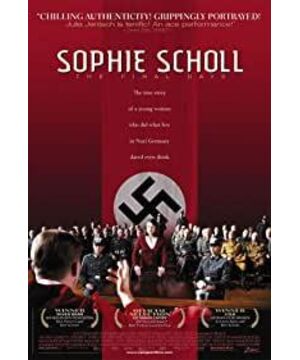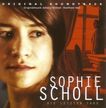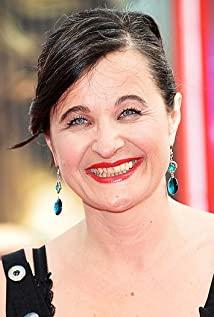The film is about in 1943, several students of the University of Munich, Germany, distributing leaflets against the Nazis, were arrested and completed the trial and execution in two days. The whole film is only a gentle conversation, a chattering but calm conversation, a light and happy conversation, and finally ends with a click on the guillotine.
The protagonist of the story is Sophie, a 21-year-old schoolgirl with strong political opinions. I think there were many such students in our May Fourth period, but she may be more reluctant, because 1943 was the beginning of the Nazis' forcible suppression of any negative news on the battlefield and politics. Sophie's argument with the Nazi police (not the SS) was a philosophical argument. As expected of a college student studying religious philosophy in an ivory tower. But the still-effective Nazi state machine would not let her go because of her young blood. No torture, no screaming, no physical insults, just a few conversations, nothing more than offices, clean cells (certainly cleaner than student dorms) and desperately empty waiting rooms, and then the guillotine fell.
What a civilized and effective method of killing. Sophie is also fortunate to have the opportunity to hug her brothers and friends who are also on death row, and have the opportunity to part with her parents. They hardly shed a single tear. Sophie has been wearing a very well-behaved red top. The youthful, confident and restrained look is the only bright color in this gray-blue film.
In another World War II movie I saw, a British spy was caught by the Germans in France. After a brief but civilized interrogation, the enzyme poisoner was taken to the backyard and shot. In any case, both men died without loss of dignity. It can be seen that Europeans are not as interested in torturing prisoners as Orientals.
At the end of the film are a few yellowed photos, showing the sunshine moments of several young people. Unfortunately, in the 1940s, the style of scratching was popular, so a few people who devoted themselves to their faith left the audience with the impression of a little bourgeois: some walking on the beach, some sighing in the forest, some writing poetry to the sunset. There are also.
After watching it, I thought, it turns out that the film can be made like this. The small production of the film, the shock to me is no less than the big battle in LOTR. I feel that behind this film is a struggle between two cultures. Although romanticism took advantage of the Prussian Teutonic Legion to take advantage of morality and speech, it still has the final say with a gun. The SS, which I paid most attention to, only saw two collar badges flashing by. In fact, I assure Chairman Mao that this film has nothing to do with the SS, hehe.
View more about Sophie Scholl: The Final Days reviews











